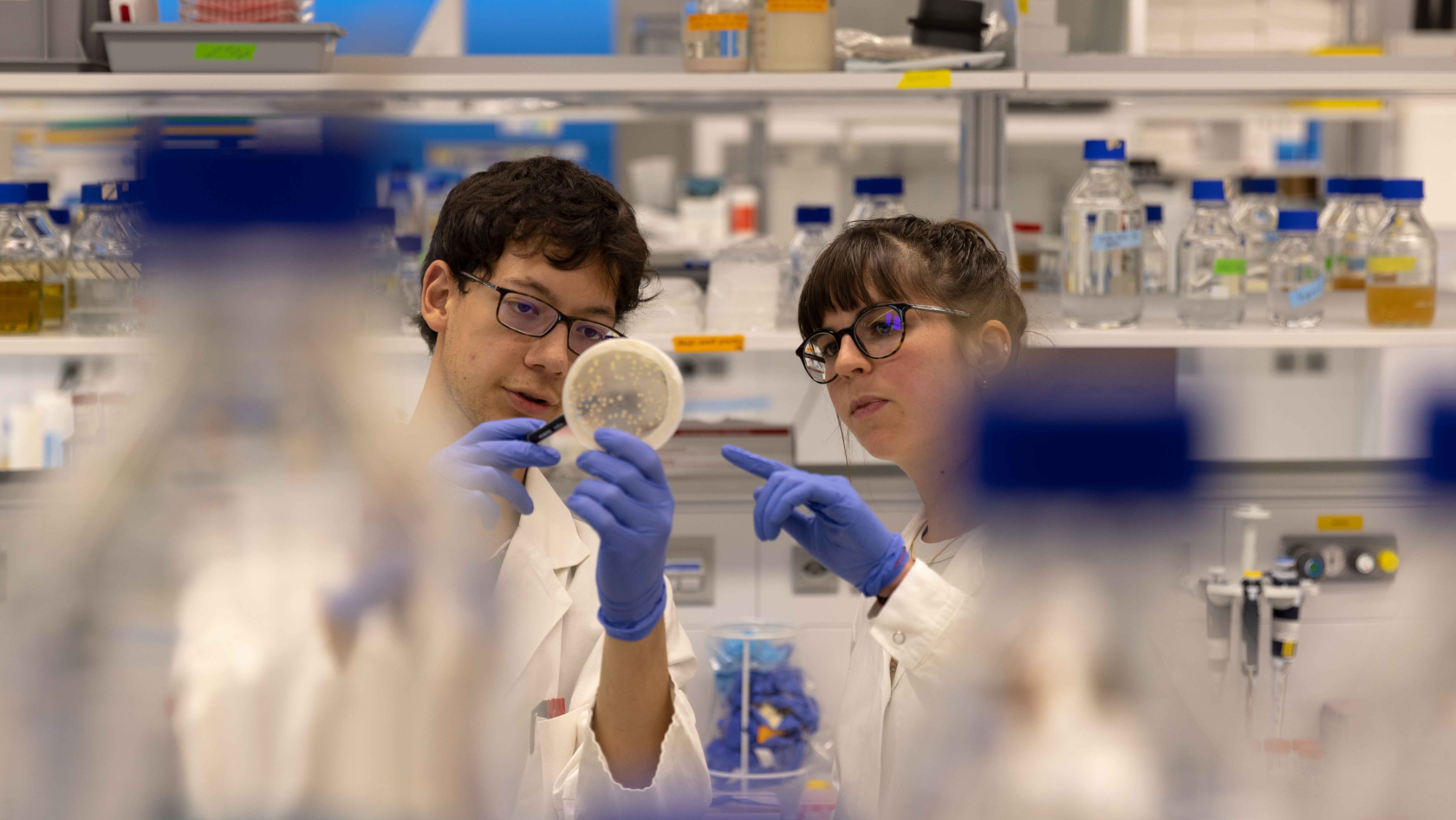Biology

Why this program?
The Master of Science degree in Biology at UZH offers the unique opportunity to acquire in-depth research experience in the one-year Masters project, which follows course work of one semester. A set of advanced modules is tailored to your needs in an individual Learning Agreement at the start of your studies. You can choose one of 14 concentrations within Biology: Animal Behaviour, Anthropology, Paleontology, Systematics and Evolution, Ecology, Plant Sciences, Genetics and Development, Neurosciences, Molecular and Cellular Biology, Cancer Biology, Microbiology, Immunology, Virology, and Quantitative Biology and Systems Biology. In all of these fields, renowned researchers are based at UZH in a variety of research groups, making it one of the best places in the world to take your first steps into research.
What can I learn?
Firstly, you will learn to plan and take responsibility for your own progress by choosing and finding a Masters thesis poject and set up the Learning Agreement together with your supervisor. In the course work, you will learn to identify key concepts and get an overview as well as detailed knowledge on the current state of biological research topics in your chosen concentration. This culminates in the self-study module «Integrated Knowlegde in Biology», which you complete at the end of your Masters with an oral and written exam. Within your one-year thesis project, you will learn to formulate a novel research question, to plan and conduct experiments or field work, and to master a variety of technics to obtain data and statistical methods to analyse your data. Scientific writing skills are essential for the written Masters thesis, which may even lead to a publication in a scientific journal.
What can I do with it later?
After the successful completion of your Masters, you can apply to the Life Science Zurich Graduate School’s 16 PhD programs. Alternatively, for career opportunities outside academia you benefit from the skills and knowlegde you gained during the Masters, such as lab or field experience, analytical skills, expertise in project planning and management, and confidence in problem solving. Biologists are known for combining practical skills with quantitative skills (biostatistics, bioinformatics), which is useful not only in life science industries but also in any field where large amounts of data are handled (e.g. financial sector, insurance, health, public administrations). In addition, due to the broad and highly interconnected fields within Biology (in all concentrations), every Masters graduate of Biology is able to self-reliantly find a way into new topics and methods by bridging to previous knowlegde and experiences, and thus will also master future challenges.
